Mozambique struggles to rebuild after dual shock of climate change and insurgent violence
Mozambique is suffering from displacement of its internal population due to violent and conflict and pressures brought on by climate change. The UNHCR is attempting to resolve issues for those who remain, including accommodation, food security and economic sustainability

October marked five years since extreme violence erupted in northern Mozambique’s Cabo Delgado province, forcing nearly 1 million people to flee. The conflict has not subsided, and thousands of families are still being forced to leave their homes because of attacks by non-state armed insurgents, devastating the population.
People have witnessed loved ones being beheaded, women and girls raped, and their houses and other infrastructure burned. Men and boys have been forcibly enrolled in armed groups. Livelihoods have been lost, and education stalled while access to necessities such as food and healthcare has been hampered.
The humanitarian situation across Cabo Delgado has continued to deteriorate and displacement figures have increased by 20 per cent to 946,508 in the first half of this year.
The conflict has now spilt into neighbouring provinces, which witnessed four attacks in September affecting at least 47,000 people and displacing 12,000, mainly in Erati district, Nampula province, and Pemba in Cabo Delgado. Recently, Balama district, which was one of the last areas that had not seen violence since the beginning of the conflict in 2017, saw attacks.
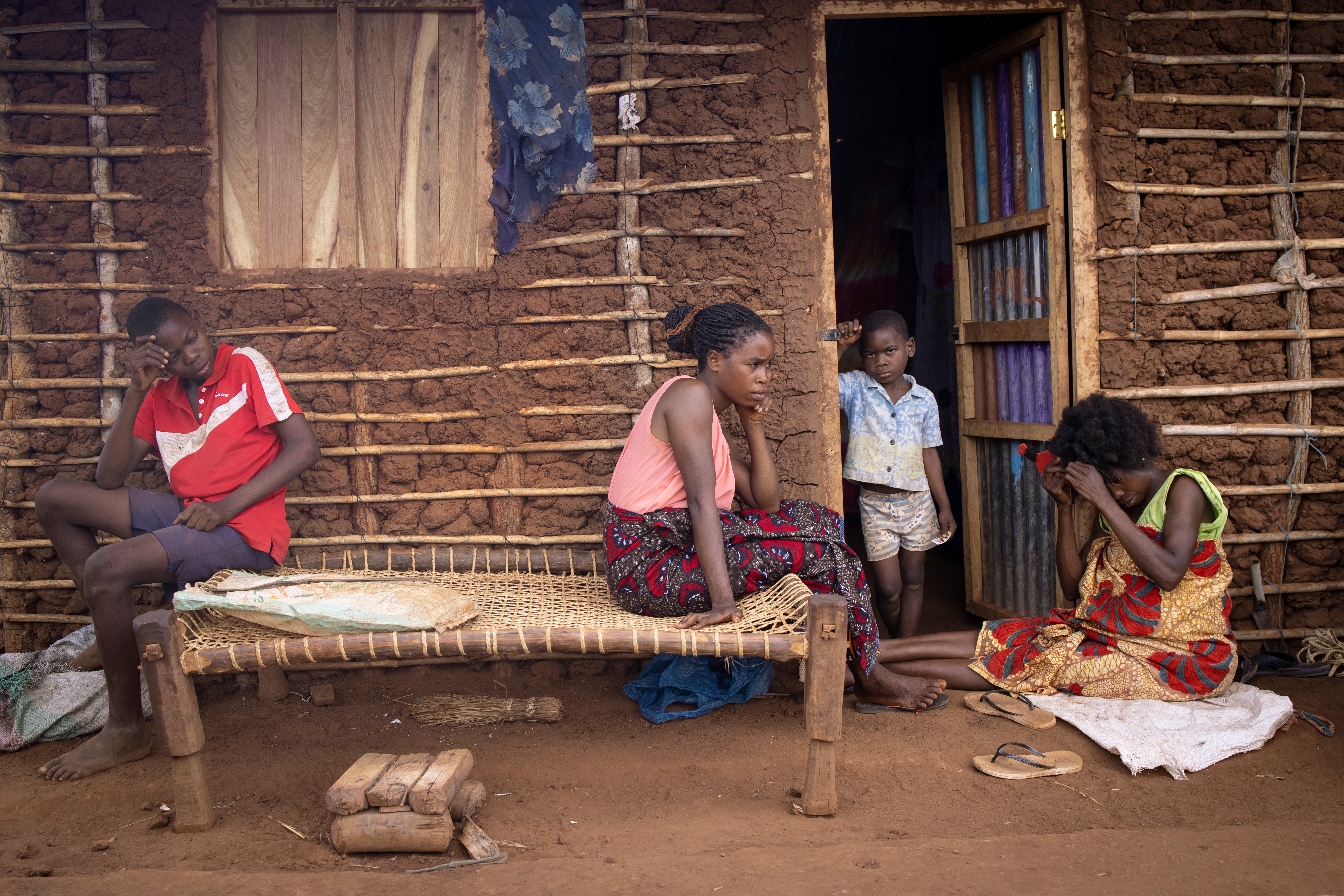
People displaced during those latest attacks told the UN Refugee Agency (UNHCR) that they are scared and hungry. They lack medicine and are living in crowded conditions – with four to five families sharing one house. Some sleep under open skies. Lack of privacy and exposure to cold at night and the elements during the day create additional safety and health concerns, particularly for women and children.
Families who had fled attacks in Cabo Delgado and had found refuge in neighbouring Nampula province, also faced climate disasters with Cyclone Gombe destroying or severely damaging their shelters in March. The UNHCR has been responding in Cabo Delgado, Nampula and Niassa provinces with humanitarian aid and protection support, providing shelter and household items, helping survivors of gender-based violence with legal, medical and psycho-social support, and helping obtain legal documentation.
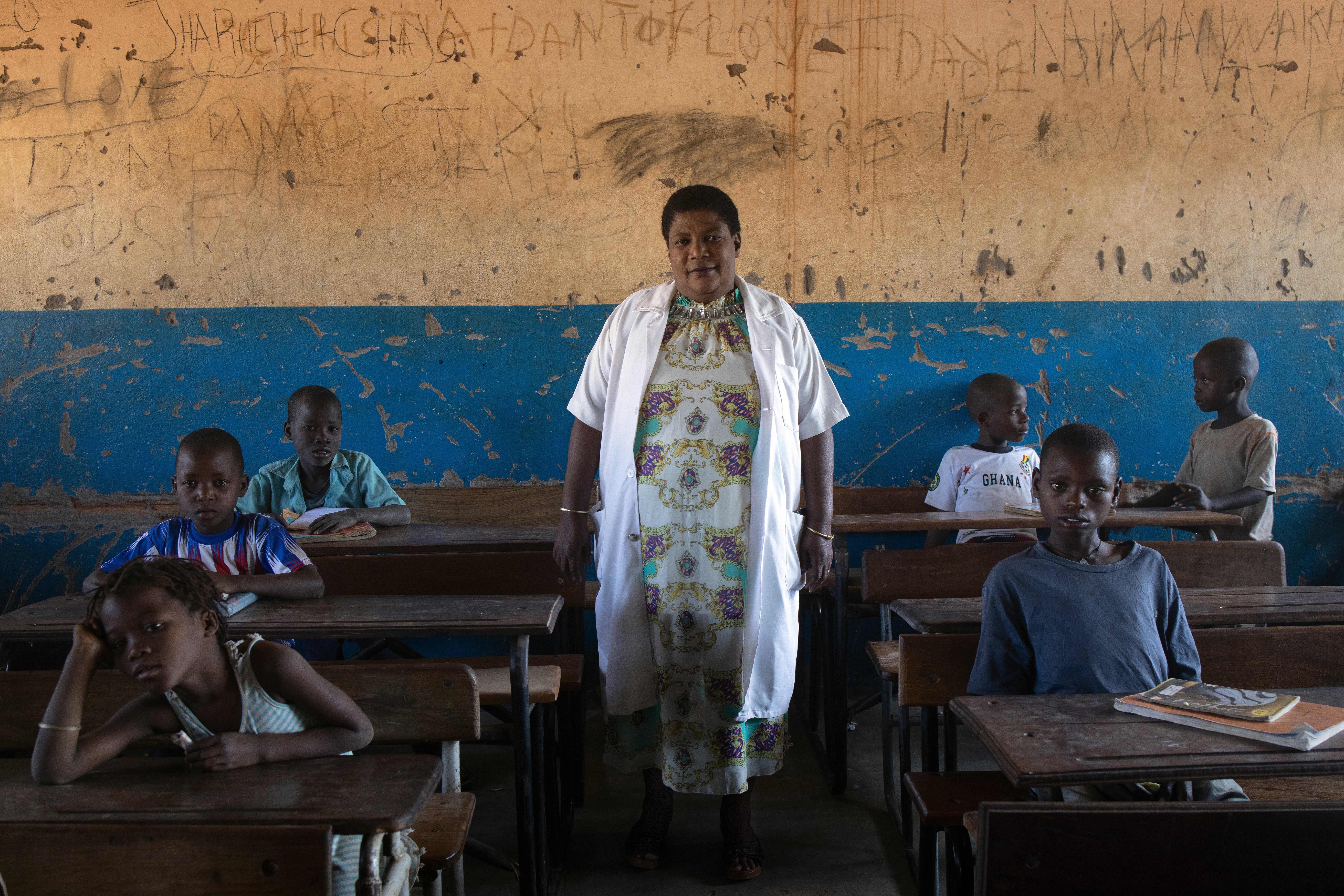
Despite the displacement, some have chosen to return to their homes in areas for many reasons including the perceived improvement of the security situation and limited opportunities in areas of displacement. The town of Palma saw deadly attacks on 24 March 2021, which displaced most of its 70,000 people. Yet the majority have gone back in recent months.
Most are returning to areas where services and aid are still scarce or unavailable, exposing them to multiple risks. The UNHCR considers it premature to facilitate returns until the security situation is stable and basic services are re-established. However, growing protection needs and limited services for those who have chosen to return home must still be urgently addressed by authorities and humanitarian actors.
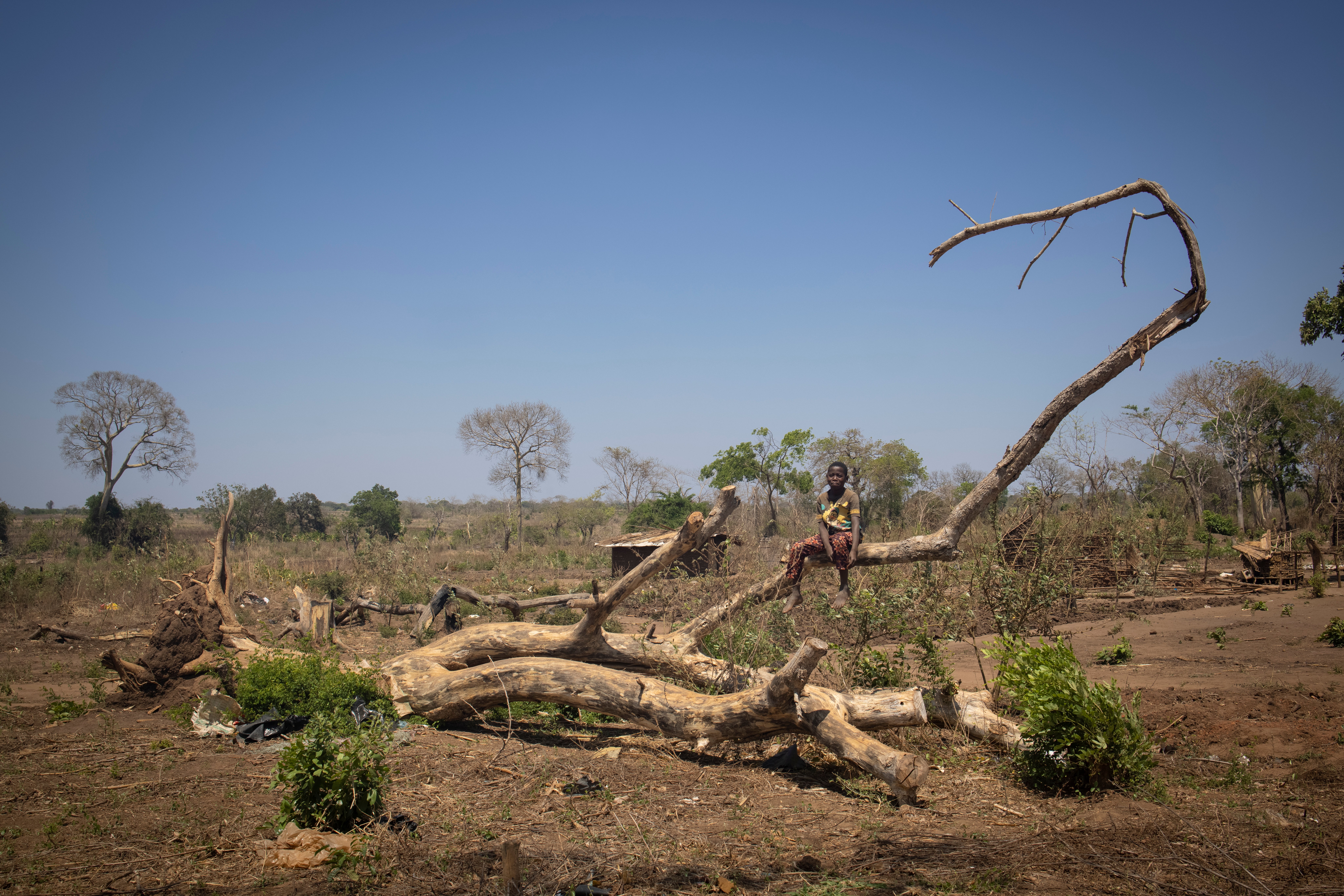
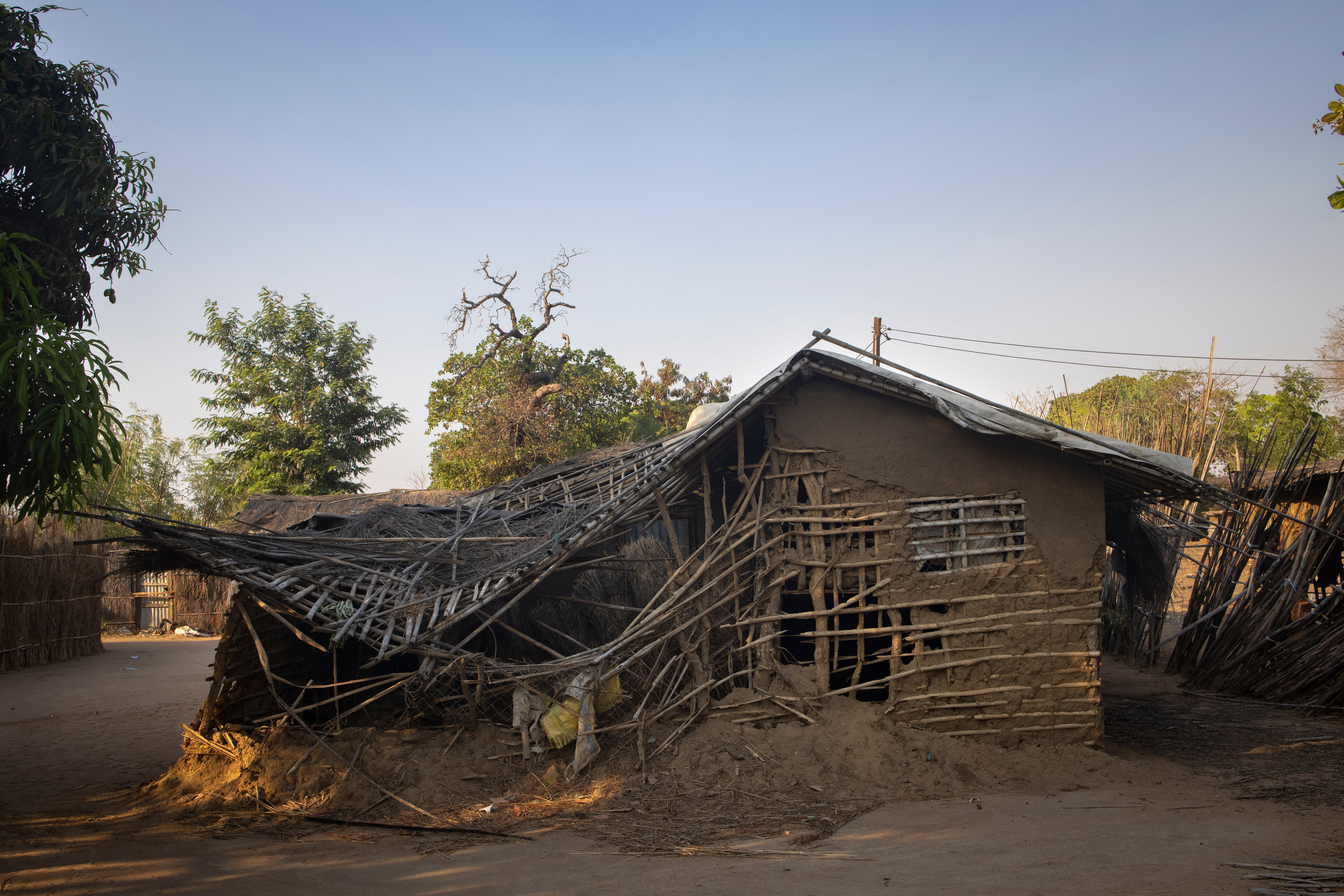
Mozambique suffers a climate emergency on top of the violence and displacement. It is among the countries most impacted by climate change with the expectation of experiencing more extreme and intense weather events. In March 2019, Cyclone Idai struck, followed by Cyclone Kenneth. About 250,000 people were displaced and 650 people killed.
This year, the country has endured five tropical storms and cyclones including Tropical Storm Ana in January and Cyclone Gombe in March, which impacted 736,000 people, blazing a trail of destruction through Nampula and Zambezia provinces. Winds reached 120mph, mowing down swathes of houses, schools, roads and bridges, and flooding farmlands. Fragile shelters housing people displaced by violence stood no chance.
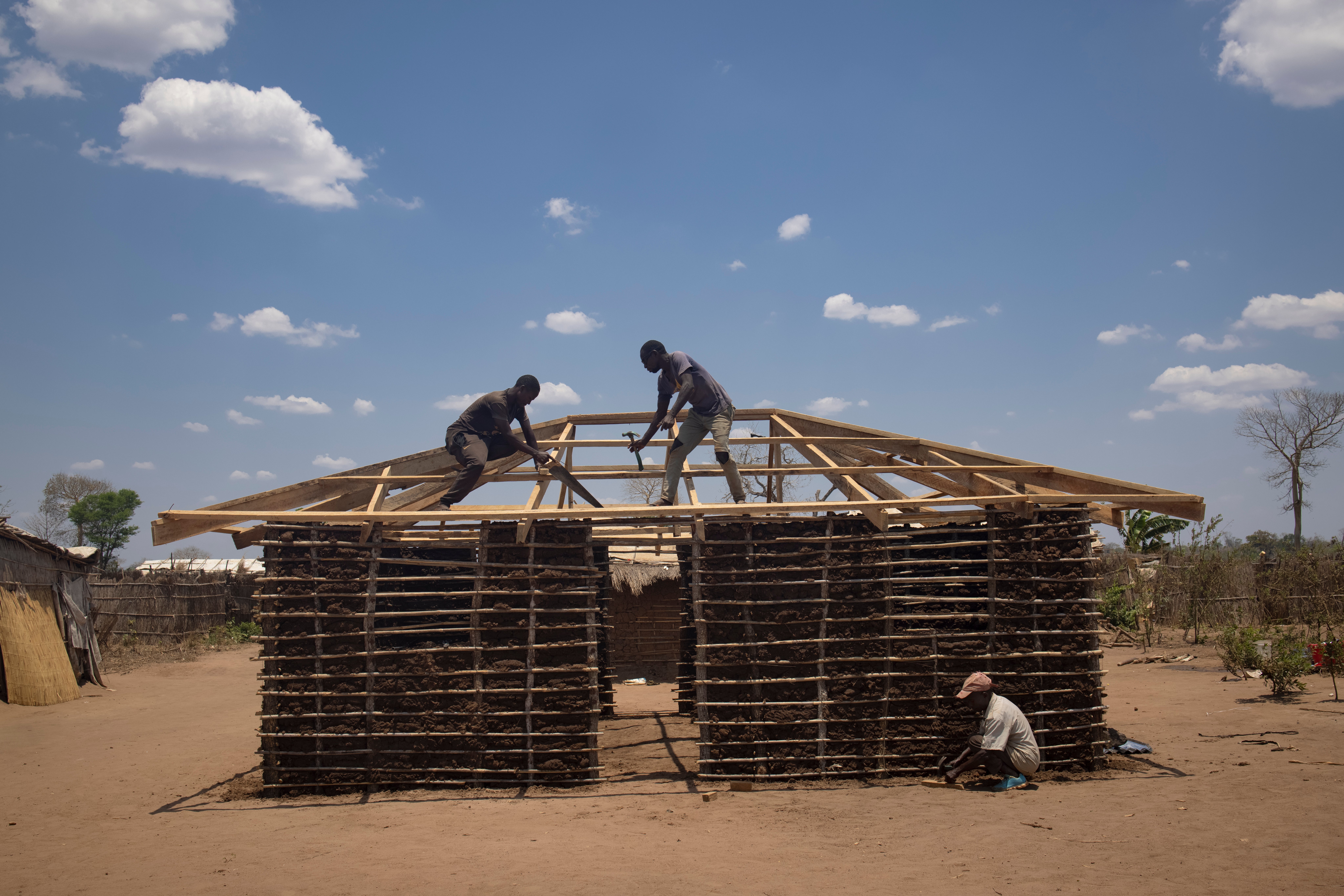
The UNHCR and its partner Caritas have been helping those recently displaced by climate disasters to build new, stronger homes such as in the Corrane site, in Nampula province, which hosts 7,000 people. When hit by Gombe shelters were destroyed or severely damaged.
Displaced people are involved in the design, construction and reinforcement of their new homes to counter climatic extremes. They prepare the mud for the walls and assist workers completing the roof.
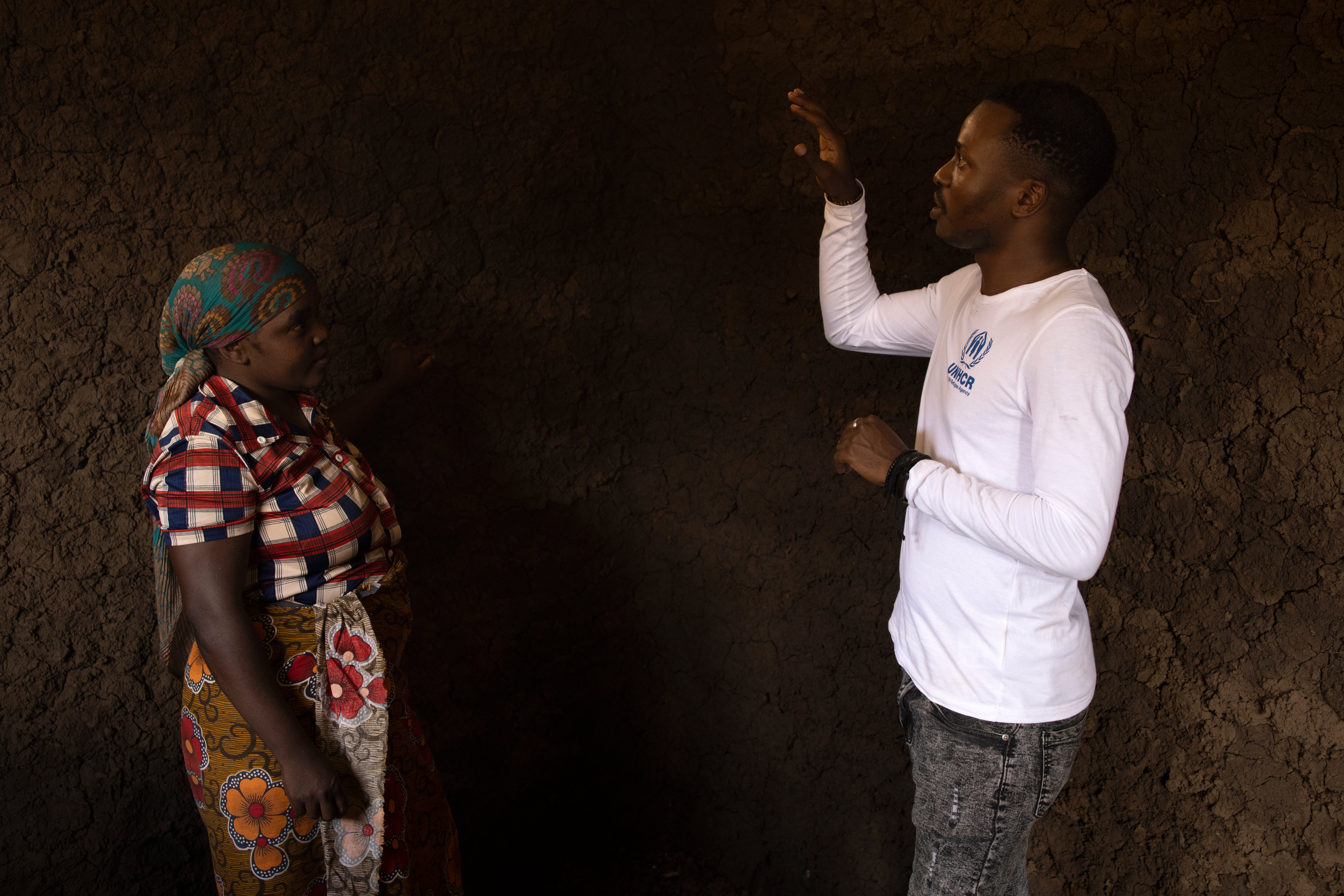
UNHCR shelter officer Armando Macave said the focus is creating shelters with overhanging roofs “to be able to withstand gale-force winds” while improving overall solidity. The houses are built with locally-sourced wood and bamboo, reinforced with ropes recycled from old tyres, and zinc sheets for the roofs.
So far, about 300 of the new shelters have been built in Corrane, with plans to build a further 250 soon and more in the surrounding communities in Maratane and Nampula. The Corrane settlement, which hosts 9,300 refugees, mainly from the Democratic Republic of the Congo and Burundi, was also devastated by Gombe, with 80 per cent of shelters damaged, some completely destroyed.
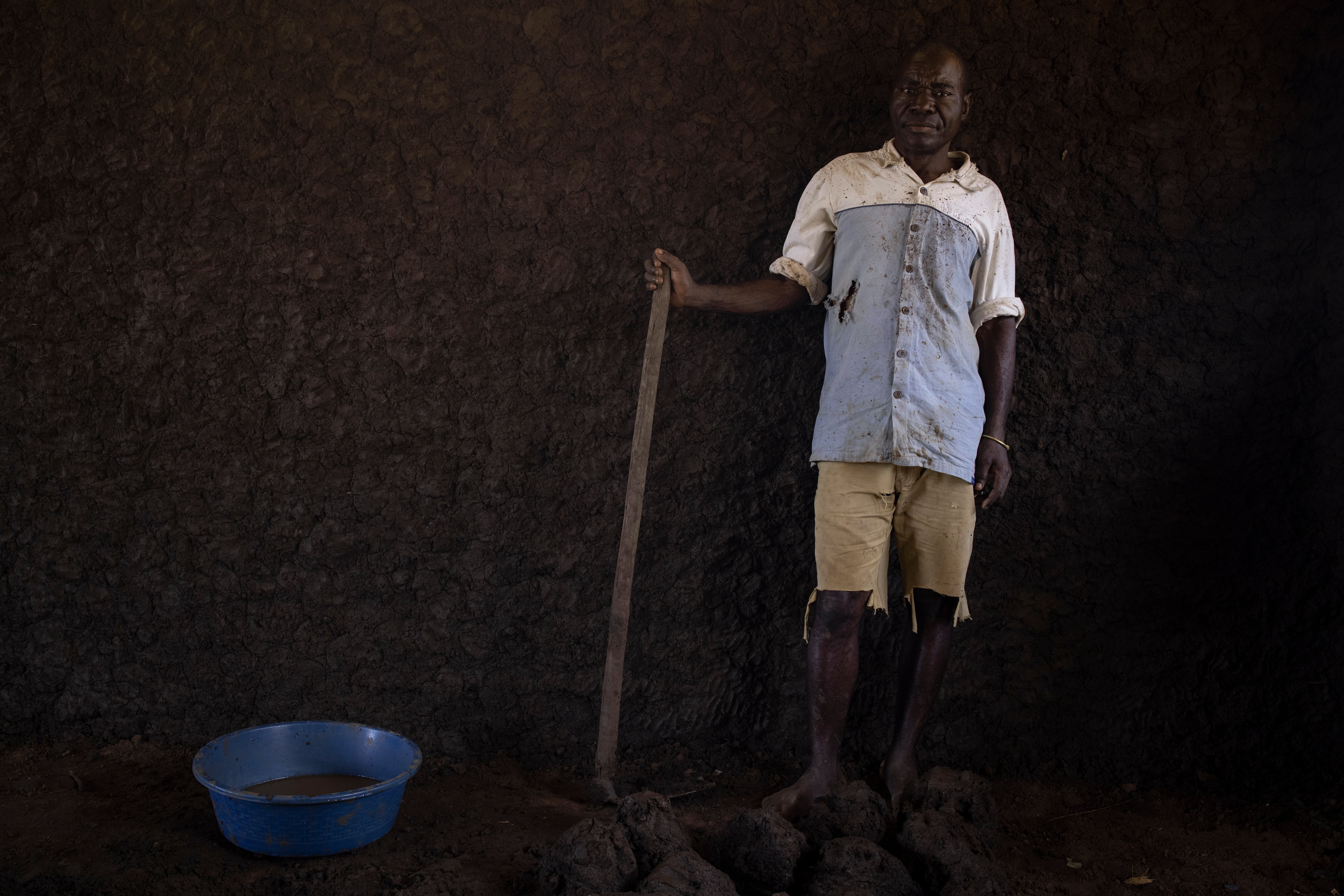
Patricio Alberto Mponda’s village in Cabo Delgado had been attacked three times in recent years by armed groups. “The two first times, we fled to the bush and returned to our homes after they had looted everything,” he said. During the second attack in April 2020, his 22-year-old nephew was shot dead and his 24-year-old daughter was kidnapped. Since her abduction, he has had no news of her whereabouts.
Mponda said: “During the third attack in July 2020, they burned 70 houses, including mine, and beheaded some people. We had no choice but to flee for our lives. We ended up here in Corrane.”
Then disaster struck again. During Gombe, the roof of Mponda’s home in Corrane blew off and landed in the yard; the mud walls started to collapse. “Within minutes, we were left out in the open,” he said.
His neighbours sheltered them for a week while they built a temporary shelter. Many other shelters in Corrane and Maratane were severely damaged that night. Now his new home is almost ready. He said: “The new shelter is much better. I know I will feel safer in this home should there be new cyclones or tropical storms. What I need now is a piece of land to cultivate my own food and be independent.”
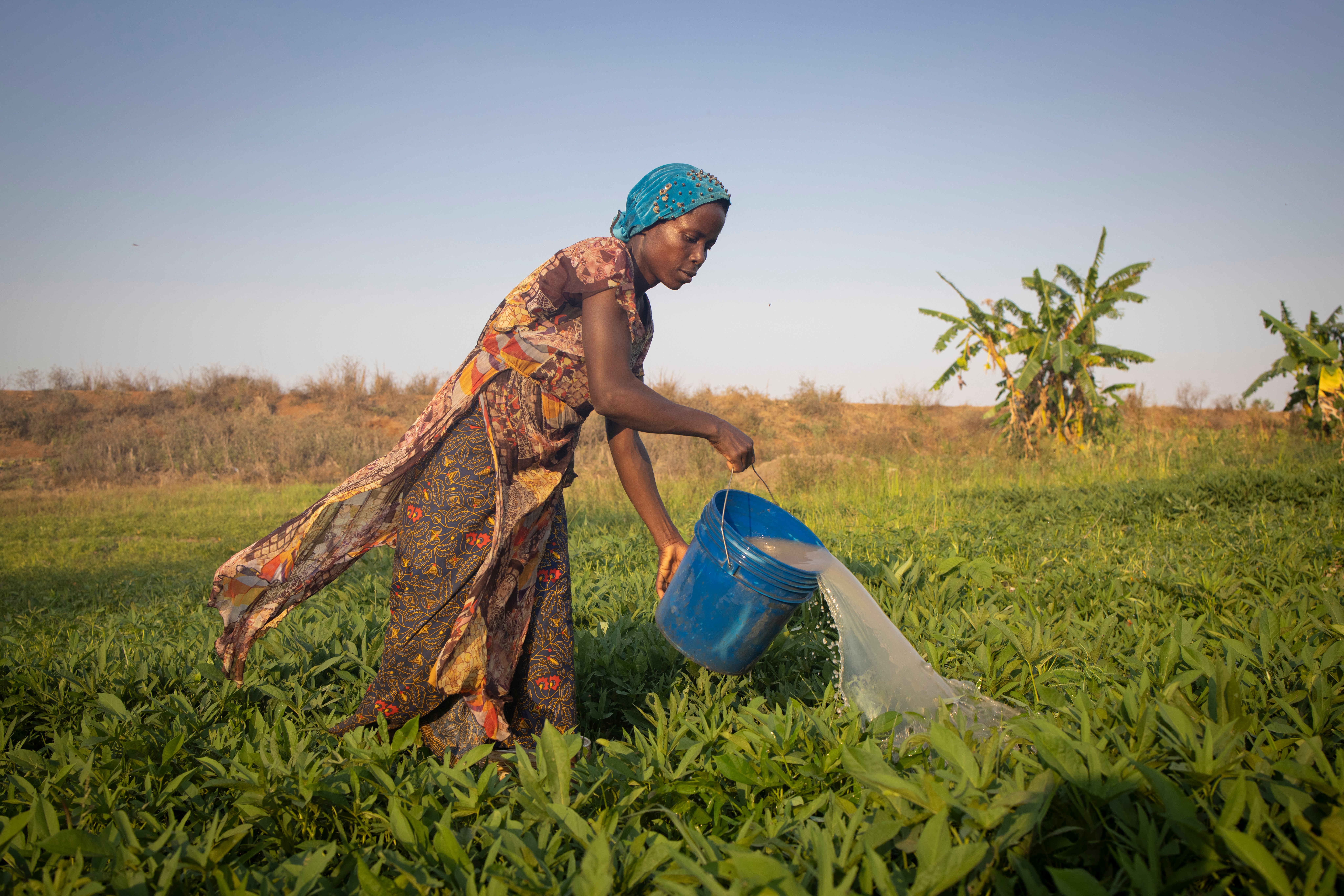
Dorotea Ndahisenga, a 35-year-old Burundian refugee, had her home destroyed by Gombe. “It was really tragic,” she said. “In a matter of minutes, we didn’t have a home any more. The roof collapsed just after I had taken my seven children outside to safety. It was like escaping a conflict. The children were crying; I felt very lonely and powerless. My husband left me earlier this year and there was no one I could rely on.”
Ndahisenga and her children found short-term refuge at a neighbour’s house and then in an unoccupied shelter, but they hope to move into a new house the camp’s church is helping to build. Despite this help, each day is a struggle. “I cultivate potatoes on a small plot of land owned by a Mozambican. My crops were destroyed when Gombe hit but I cleaned the devastation away and re-planted. Now I have potatoes again.”
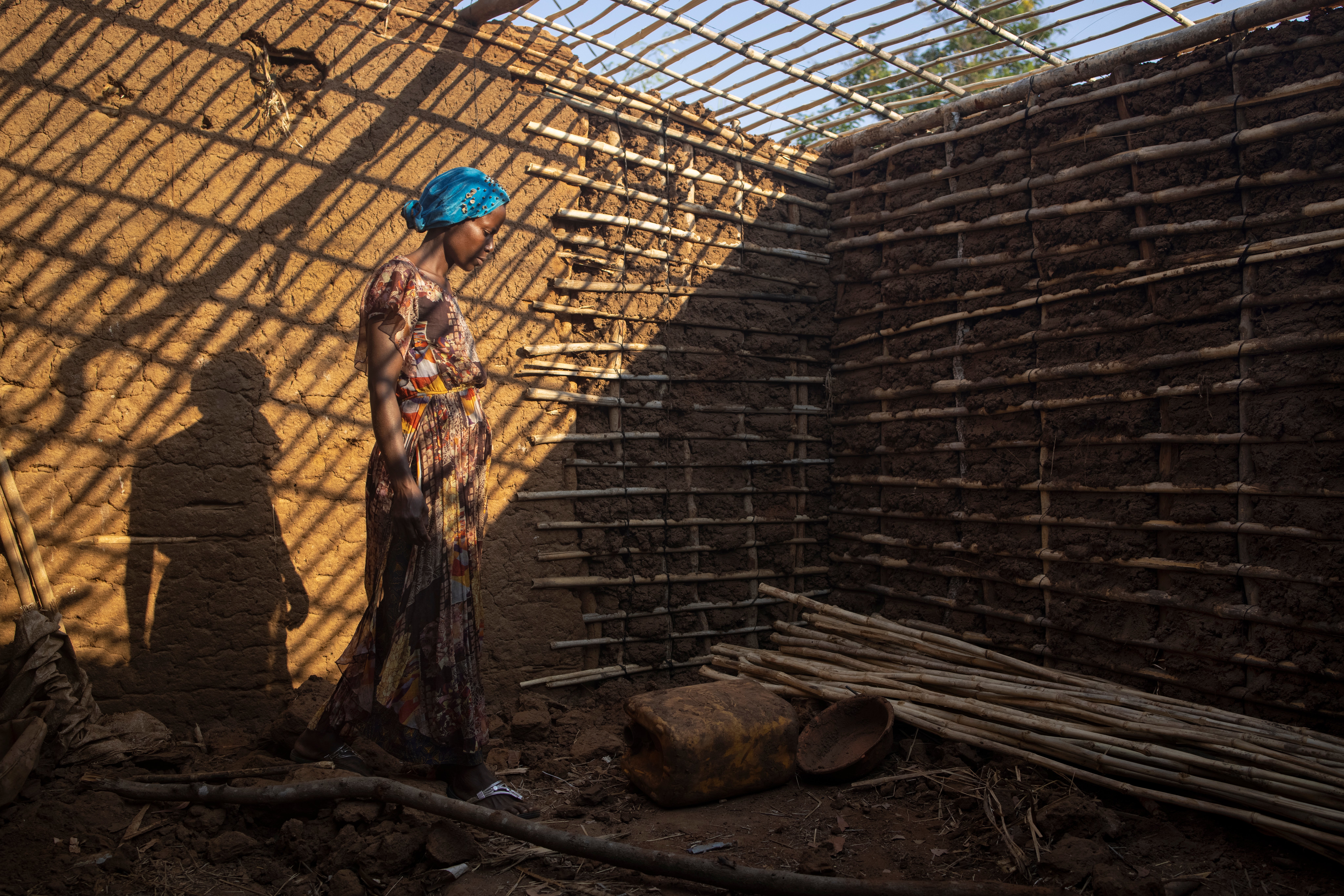
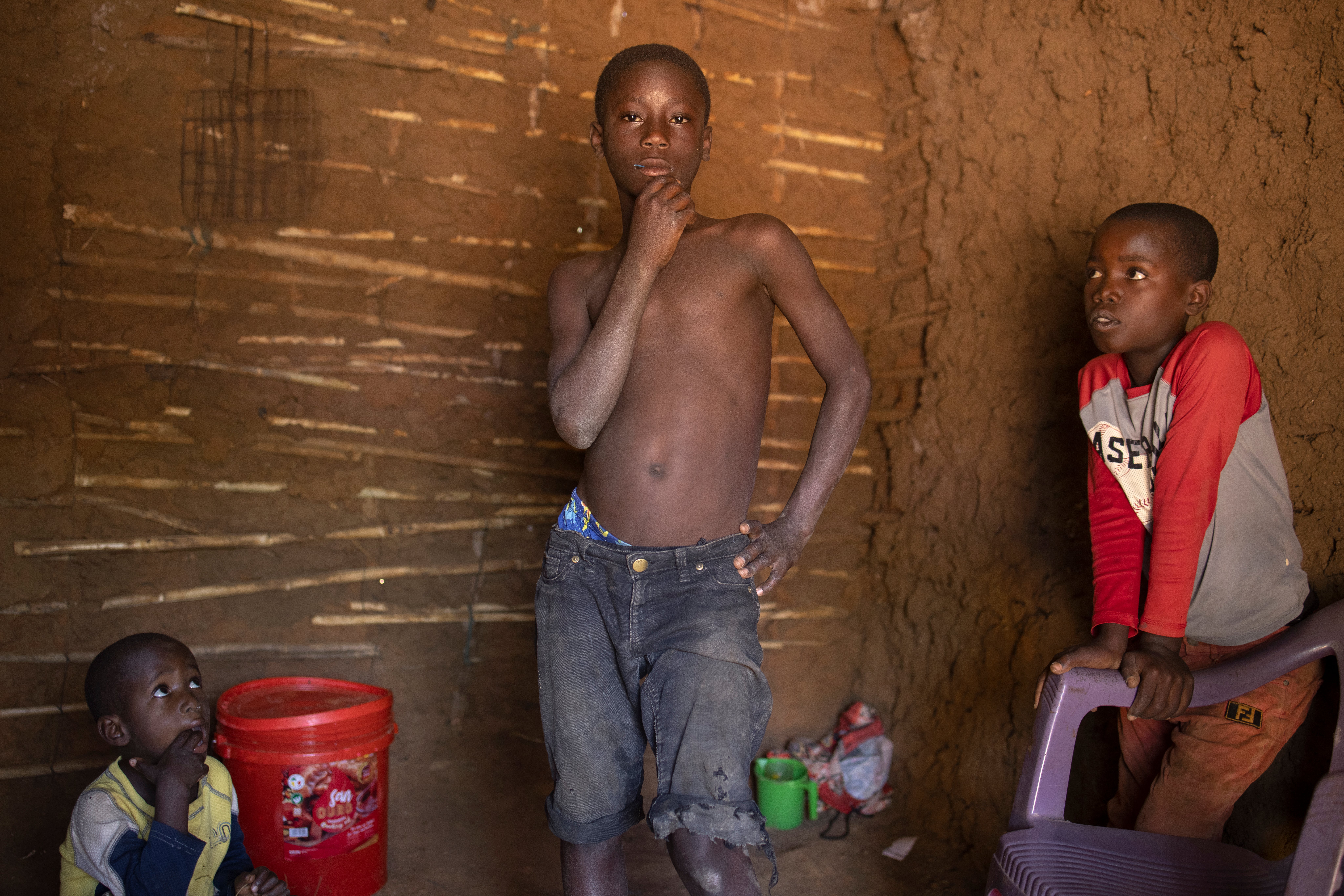
She sells her produce to other refugees and uses the income to buy other food, but it is not enough. “I’m alone with seven children and I don’t know what our future is. Hopefully, we can move soon to our new house where we will feel at home.”
The climate crisis has amplified the vulnerability of refugees and displaced people. The answer to the crisis in northern Mozambique is an end to the violence to allow the displaced to return home in safety and dignity, while supporting their efforts to face the impact of climate change. As of November 2022, the £30m needed for UNHCR to deliver life-saving protection services and assistance in Mozambique this year was 68 per cent funded.
You can find out more about UNHCR’s Mozambique emergency appeal here
Join our commenting forum
Join thought-provoking conversations, follow other Independent readers and see their replies
Comments
Bookmark popover
Removed from bookmarks